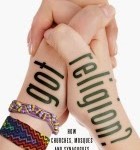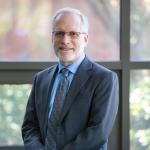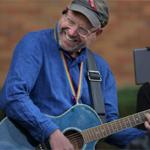Rabbi Berel Wein is beyond any doubt one of the most profound, prolific and inspired rabbis of the 20th century. I have never learned with him personally or attended any of his lectures but nonetheless I have encountered his teachings throughout my life. Rabbi Wein is a moral voice on societal issues, a contemplator of Jewish history and Jewish destiny and a master educator. It is with that background into the man that I brought with me when I began reading his new autobiography, Teach Them Diligently (Maggid, 2014).
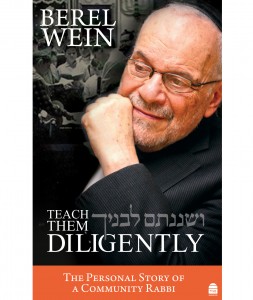 The first thing about the book that struck me was its length. One would expect a book about such a distinguished rabbinic personality to be dense, perhaps even two volumes. Yet, at only a little more than 160 pages, this autobiography feels light. His books on Jewish thought and history weigh in significantly more: Echoes of Glory at 333 pages, Vision and Valor at 255 pages, Triumph of Survival at 508 pages just to name a few. This conundrum though is easily explained when one begins to read his autobiography. He focuses much more on the people that surrounded him throughout his life and on his family than he does on himself. The book echoes the man; full of humility continuously lifting up others and highlighting them. A true educator.
The first thing about the book that struck me was its length. One would expect a book about such a distinguished rabbinic personality to be dense, perhaps even two volumes. Yet, at only a little more than 160 pages, this autobiography feels light. His books on Jewish thought and history weigh in significantly more: Echoes of Glory at 333 pages, Vision and Valor at 255 pages, Triumph of Survival at 508 pages just to name a few. This conundrum though is easily explained when one begins to read his autobiography. He focuses much more on the people that surrounded him throughout his life and on his family than he does on himself. The book echoes the man; full of humility continuously lifting up others and highlighting them. A true educator.
The second aspect of the book that reflected its author was the personal nature of it. A reader of his works on Jewish history know that he transports you into the period that he is describing. The history becomes more than a collection of facts and data points; it becomes a story of intrigue, passion and faith. The history is made personal. This is very much reflected in his autobiography. Rabbi Wein writes the details of his life as a story revealed to the reader. He opens the book of his journey, both the triumphs and the disappointments, and through it all we become more than simply a reader, we become a student in his classroom.
His formative years and the beginning of his rabbinate take place in Chicago, a city that I have known throughout my own life. My father’s family comes from Chicago and I, along with my own family, have recently moved here. To read his book with its intertwining of his history with the history of Jewish Chicago is a fascinating exploration of one of America’s largest Jewish communities. As he reflected on his undergraduate studies at Roosevelt College (now University) with its many teachers who were “avowed Communists and atheists who looked askance at yeshiva students (pg. 23),” I reflected on my family’s own Chicago history. My grandfather, Dr. Bernard Greenberg, of blessed memory, was one of those professors at Roosevelt at the same time he was a student there and as I read his experience I couldn’t help but wonder if they ever shared words on religion, politics and society. Rabbi Wein’s comments interspersed throughout the book on his lifelong interactions with Jews from differing walks of life, including this one at Roosevelt College, is a study in the ways Jews come to meet each other in shared spaces and the intersections of various Jewish identities with an all-encompassing fate that links Jews of all kinds together.
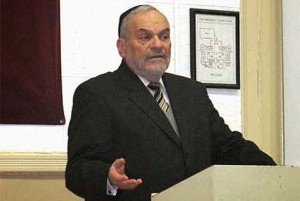 As he takes us on his life through Chicago, Miami, Monsey and Jerusalem we find the richness of Jewish experience and meet many fascinating characters along the way. Rabbi Wein’s life touches on so much of what shaped 20th century Orthodox Judaism in America. We walk into the Lower East Side apartment of Rabbi Moshe Feinstein zt”l or into the Cape Cod vacation home of Rabbi Joseph Soloveitchik zt”l with Rabbi Wein as we turn the pages of the book and as we do we encounter the shaping of halakha and policy in American Orthodoxy. A casual visit with Rav Soloveitchik or a phone call with Rav Moshe on a matter of kashrut or internal affairs of the Orthodox Union become a critical moment as Judaism continued to flourish on these shores. These many encounters recorded throughout the book are yet another dimension of the profundity of this small and lightweight work.
As he takes us on his life through Chicago, Miami, Monsey and Jerusalem we find the richness of Jewish experience and meet many fascinating characters along the way. Rabbi Wein’s life touches on so much of what shaped 20th century Orthodox Judaism in America. We walk into the Lower East Side apartment of Rabbi Moshe Feinstein zt”l or into the Cape Cod vacation home of Rabbi Joseph Soloveitchik zt”l with Rabbi Wein as we turn the pages of the book and as we do we encounter the shaping of halakha and policy in American Orthodoxy. A casual visit with Rav Soloveitchik or a phone call with Rav Moshe on a matter of kashrut or internal affairs of the Orthodox Union become a critical moment as Judaism continued to flourish on these shores. These many encounters recorded throughout the book are yet another dimension of the profundity of this small and lightweight work.
In many ways this autobiography is a call to the next generation to continue the holy work of Jewish life. Near the beginning of his formative years, Rabbi Wein meets and attends a lecture by Rabbi Isaac Halevi Herzog zt”l, the Chief Rabbi of British Mandate Palestine after the Second World War. In that lecture Rabbi Herzog describes the agony of being unable to redeem and reunite all the Jewish children being held in Catholic institutions throughout Europe. These children had been deposited into the hands of the Church for safekeeping during the terror of the Nazi years with the hope that their children would have a fighting chance to live and if their family would survive they could be brought together again. Unfortunately, many Catholic institutions during those days, bearing the ancient cross of deeply held anti-Semitism, refused to let the children go. Rabbi Herzog, crying from the lectern in Chicago detailing this painful reality, turns to the audience and challenges them: “How are you going to help rebuild the Jewish people? (pg. 2)”
Rabbi Wein’s life is his answer to that question posed by Rabbi Herzog. This book is Rabbi Wein’s continuation of that question to the current generation and to those who will come after. How are we going to rebuild the Jewish people? How will we continue the work of the great ones who came before us? This small book of only 161 pages leaves us with a far from small question and challenge. May we rise to that challenge.


